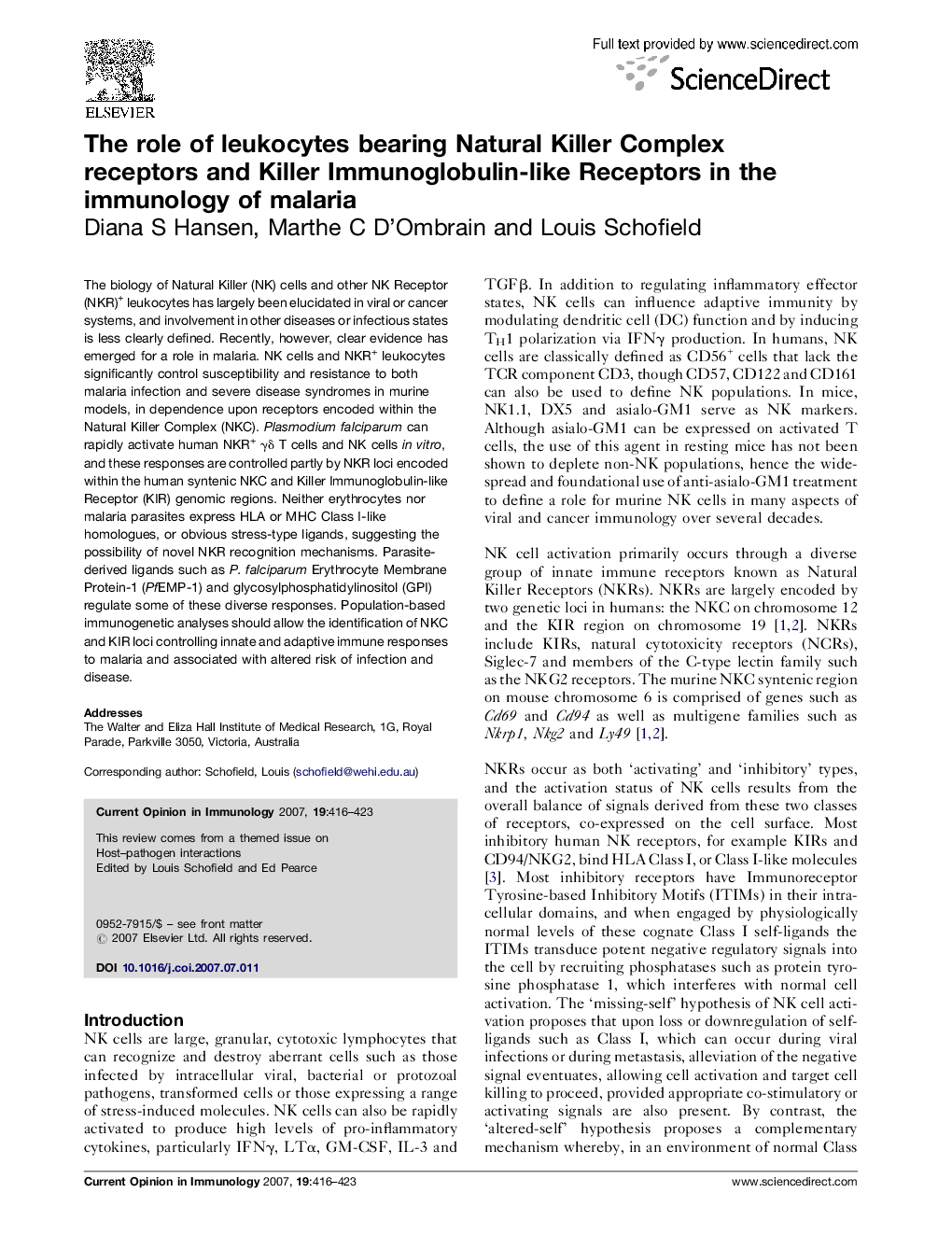| کد مقاله | کد نشریه | سال انتشار | مقاله انگلیسی | نسخه تمام متن |
|---|---|---|---|---|
| 3346517 | 1215792 | 2007 | 8 صفحه PDF | دانلود رایگان |

The biology of Natural Killer (NK) cells and other NK Receptor (NKR)+ leukocytes has largely been elucidated in viral or cancer systems, and involvement in other diseases or infectious states is less clearly defined. Recently, however, clear evidence has emerged for a role in malaria. NK cells and NKR+ leukocytes significantly control susceptibility and resistance to both malaria infection and severe disease syndromes in murine models, in dependence upon receptors encoded within the Natural Killer Complex (NKC). Plasmodium falciparum can rapidly activate human NKR+ γδ T cells and NK cells in vitro, and these responses are controlled partly by NKR loci encoded within the human syntenic NKC and Killer Immunoglobulin-like Receptor (KIR) genomic regions. Neither erythrocytes nor malaria parasites express HLA or MHC Class I-like homologues, or obvious stress-type ligands, suggesting the possibility of novel NKR recognition mechanisms. Parasite-derived ligands such as P. falciparum Erythrocyte Membrane Protein-1 (PfEMP-1) and glycosylphosphatidylinositol (GPI) regulate some of these diverse responses. Population-based immunogenetic analyses should allow the identification of NKC and KIR loci controlling innate and adaptive immune responses to malaria and associated with altered risk of infection and disease.
Journal: Current Opinion in Immunology - Volume 19, Issue 4, August 2007, Pages 416–423